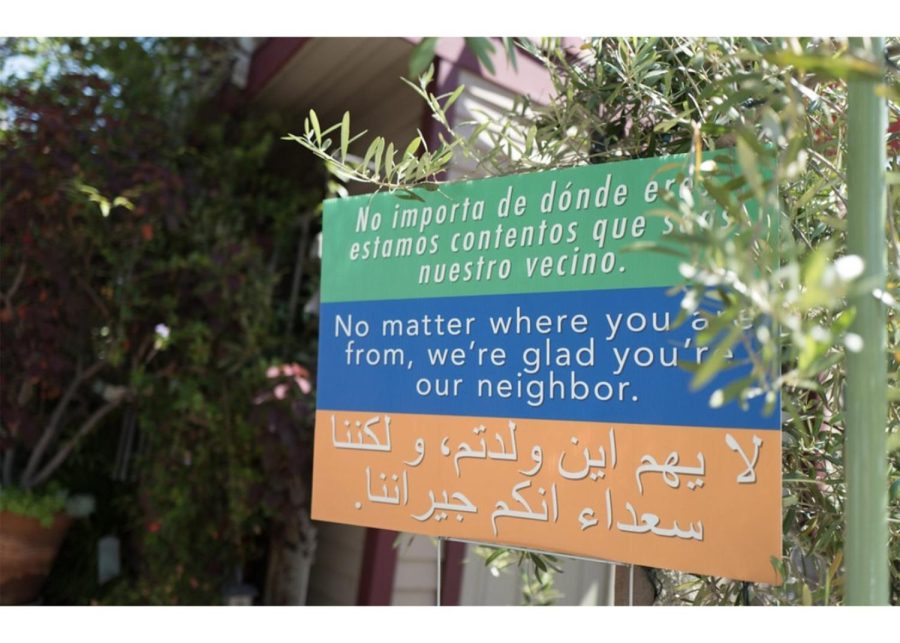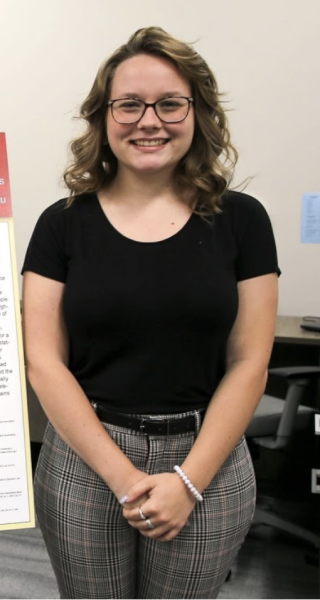First CHESS Speaker Series event is set for Feb. 8
The first CHESS Speaker Series event will be on multilingual signage around Erie and how Gannon can be a more inclusive community partner.
January 25, 2022
Gannon University’s Spring CHESS Speaker series starts off in the beginning of February with a discussion of multilingual signage in Erie.
Dr. Ashley Yochim, an associate teaching professor in English at Penn State Behrend, is presenting two different workshops.
The first workshop will take place Feb. 8 and will focus on an analysis of the signage diversity in Erie and will allow Gannon students to participate and create signs in their native languages to be posted around the Erie campus.
The creation of these signs will take place at the second workshop on Feb. 22.
Yochim discovered the need to spread awareness for the lack of signage while interviewing refugees, immigrants and domestic migrant populations during her own research.
Yochim had asked these groups, “What was the most challenging part about moving to Erie?”
Among other answers, one that surfaced on multiple occasions was that street signs, bus announcements and other important signs were only available in English.
This obstacle made these groups feel lost, making a not-so-easy transition even more difficult than it should be.
An analysis of the signage in Erie was done, and it showed that all official signs were in English. Privately owned businesses, places of worship and street murals are all areas in Erie where multilingual signage can be found.
Yochim found while looking at signage through Erie that foreign-born business owners have accommodated their diverse linguistic populations with their signage.
Erie as a location for refugees must be “more welcoming,” according to Yochim.
“This is more than just simply a welcoming issue, though; it’s also a practical and even a safety issue,” Yochim said.
Yochim found statistics that stated between 7,000 and 20,000 new Americans live in Erie, and within those numbers, about 12,000 speak a language other than English.
With Erie’s overall population being just over 100,000, those who speak other languages made up a significant portion of the population.
Yochim’s goal for her presentation is to make those who attend more aware of the need for multilingual signage and to initiate a conversation to pioneer new ideas on how to make things more accessible for those who are not fluent or cannot read English.
According to Yochim, the aspect of increasing official signs with other languages depends wholly on the willingness of the city government, planners and other stakeholders.
Groups around the Erie area have made significant efforts to add signage with varying languages.
Erie Arts and Culture made a list of businesses owned by new Americans so that they can be used as a resource for those coming into Erie.
Peace Poles are set up and spread around Erie.
All of the poles say, “may peace prevail on Earth,” and have these words in many languages marked on them.
The Sisters of St. Joseph Neighborhood Network created a Namaste Garden for Bhutanese refugees that has several languages on the signs throughout the garden.
Yochim also mentioned that there has been a large number of changes over the last 20 years.
She grew up in the Erie area, and at that time there were barely any signs that were not in English.
“Now as an adult, it’s so exciting to drive throughout the city streets and see numerous stores with signs in languages like Arabic and Spanish,” she said.
During the workshop scheduled for Feb. 22, upper-level Spanish students and students from the Arabic class will create multilingual signage that will be spread throughout the Gannon campus, which will assist in connecting both global and domestic students to the Erie community of refugees.
JILLIAN WELLS
[email protected]






